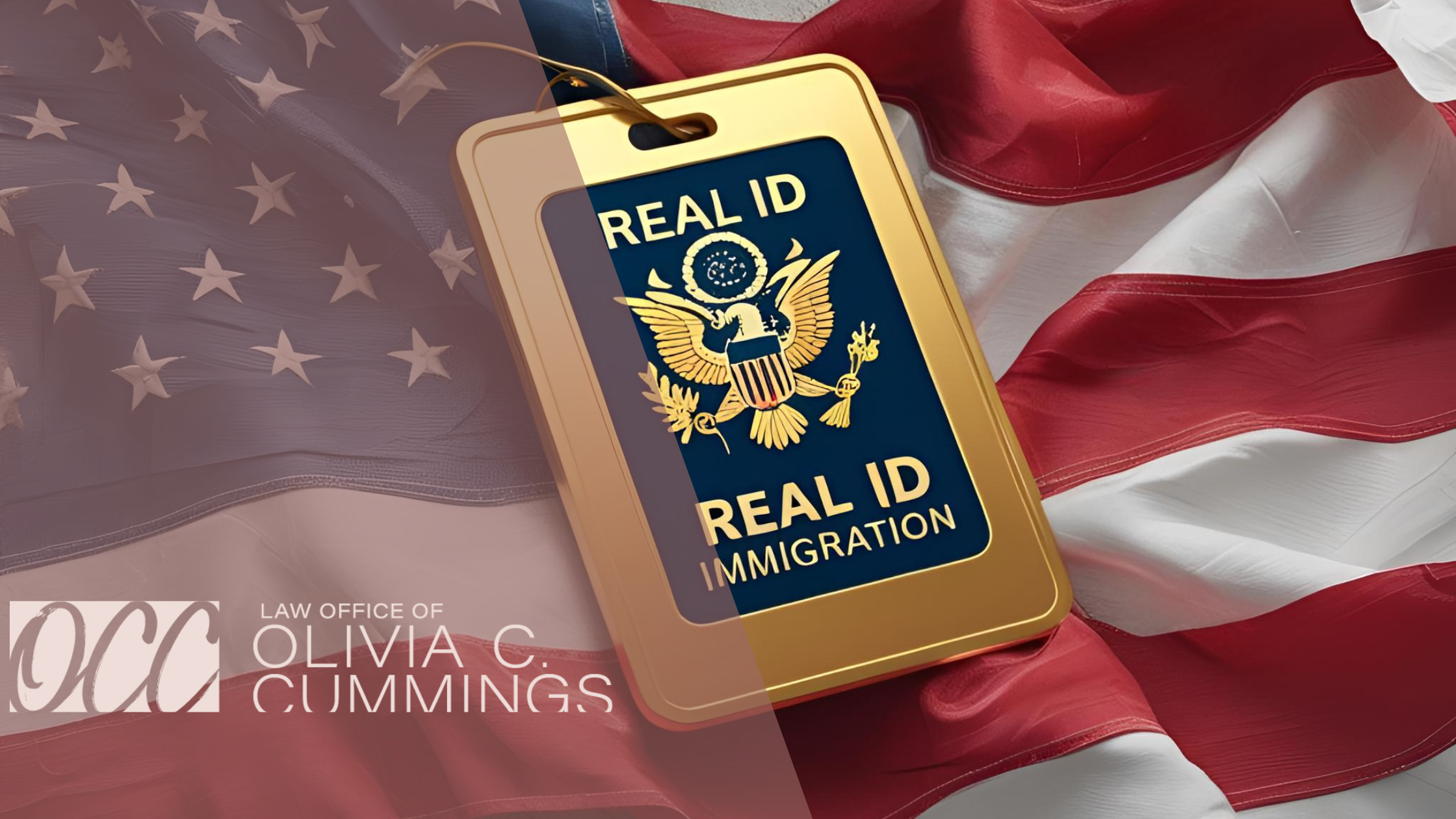REAL ID for immigrants traveling domestically is now a key consideration for many foreign nationals, especially those in the U.S. on temporary visas or adjusting status. If you’re an immigrant planning to fly within the U.S., you may be wondering whether a REAL ID is required. As of May 7, 2025, the REAL ID Act is in full effect—and many of our clients are unsure whether they can travel without one. This article walks you through ID requirements, I-94 expiration risks, and domestic travel while your immigration status is pending.
REAL ID for Immigrants Traveling Domestically: Is It Required?
No. Foreign nationals and immigrants do not need a REAL ID to fly within the United States—as long as they carry federally accepted identification.
According to the Transportation Security Administration (TSA), immigrants and visa holders may travel with the following documents:
- A valid U.S. visa
-
A valid foreign passport and an unexpired I-94 Arrival/Departure Record
-
A Permanent Resident Card (green card)
-
A DHS Trusted Traveler card (e.g., Global Entry)
If you are in lawful nonimmigrant status (such as B-2, F-1, or H-1B), you can travel domestically using your passport, visa, and I-94—even if you do not yet have a REAL ID.
Traveling Domestically While Your Immigration Case Is Pending
If you’ve filed Form I-485 for adjustment of status, you’ll receive Form I-797 receipt notices confirming your green card application is pending. While awaiting your EAD or green card, you can typically fly within the U.S. using:
-
Your valid foreign passport
-
Form I-797 receipt notices
-
A valid I-94 record, if unexpired
However, once your I-94 expires, you may not be eligible for a REAL ID. Many clients navigating REAL ID for immigrants traveling domestically during this gap period opt to travel by car or train until they receive their work permit.
REAL ID for Immigrants Traveling Domestically: Can Visa Holders Get One?
Each state has its own REAL ID application requirements, but generally, you must provide:
-
Proof of identity (e.g., valid passport)
-
Proof of lawful status (e.g., I-94 or USCIS approval notice)
-
A Social Security number or an ineligibility letter
-
Proof of state residency
The challenge? Many immigrants cannot obtain a Social Security number until after their work permit or green card is approved. Without it, you are typically ineligible for a REAL ID—even if your immigration application is pending.
This delay often complicates access to air travel under the REAL ID Act for immigrants traveling domestically who are awaiting documentation.
What Happens If Your I-94 Expires? Impact on REAL ID for Immigrants Traveling Domestically
If your I-94 has expired and you haven’t filed for an extension, change of status, or adjustment of status, you are considered out of status and may be at risk of removal proceedings.
TSA agents typically do not enforce immigration laws—but if you’re referred to CBP or ICE during secondary screening, an expired I-94 without evidence of a pending case can raise red flags.
If you filed before your I-94 expired, your presence is considered lawfully authorized while your application is pending—but this does not guarantee eligibility for a REAL ID or risk-free travel.
Best Practices for REAL ID for Immigrants Traveling Domestically
To stay safe and compliant while flying within the U.S., follow these tips:
-
Travel by car or train if you do not have a REAL ID or a valid I-94
-
Always carry your passport, visa, Form I-94, and USCIS Form I-797
-
File all immigration applications before your I-94 expires
-
Plan to apply for a REAL ID once you receive your EAD or Social Security number
REAL ID for Immigrants Traveling Domestically: Frequently Asked Questions
Can I travel domestically without a REAL ID as an immigrant?
Yes. REAL ID is not required as long as you have valid alternatives like a passport, visa, and unexpired I-94 or EAD. This is the basis of REAL ID for immigrants traveling domestically during the adjustment process.
What should I do if my I-94 has expired?
If your I-94 expired before you filed an application, you may be out of status and should consult an immigration attorney immediately. If you filed before it expired, you may remain lawfully present—but REAL ID eligibility may still be delayed.
What’s the difference between a REAL ID and a standard license?
A REAL ID meets federal travel and ID standards. A standard license can no longer be used for domestic flights or entry to federal facilities after May 7, 2025.
Need Help With REAL ID or Immigration Travel Issues?
At the Law Office of Olivia C. Cummings, we help immigrants across Miami, Fort Lauderdale, West Palm Beach, Port Saint Lucie, and beyond understand how the REAL ID Act affects their travel, adjustment of status, and I-94 status.
Whether you’re dealing with an expired I-94 or trying to figure out whether you can fly, we’re here to help.
📞 Call us today at (772) 236-0148
📅 Or schedule your consultation online: https://cummingslawpractice.com/schedule-an-appointment/.
Stay informed and protect your immigration future with trusted legal guidance.
Disclaimer: This article is for informational purposes only and does not constitute legal advice. For personalized assistance, please contact our office to schedule an initial consultation with one of our experienced immigration attorneys.


